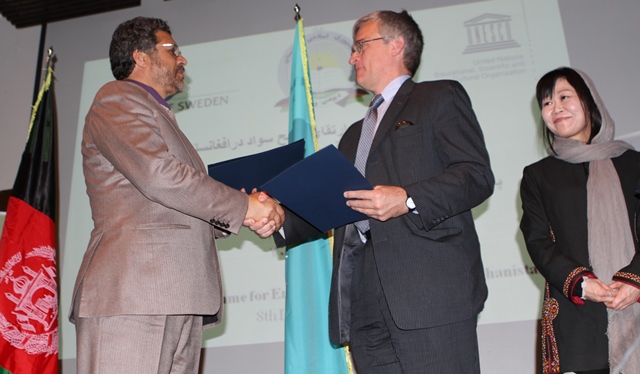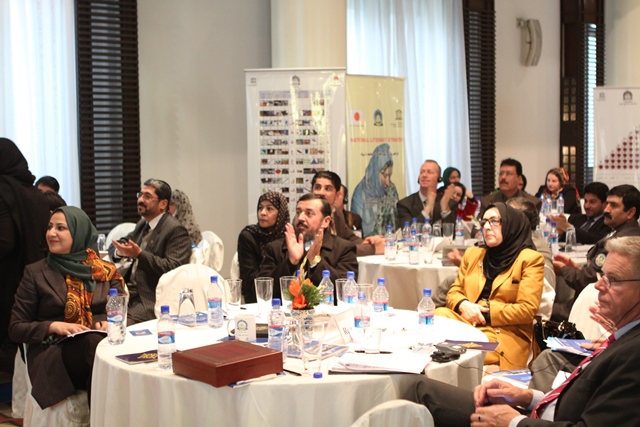KABUL - The Government of Sweden will provide a grant of close to $10 million for a United Nations-backed programme aimed at improving literacy rates in Afghanistan.“Literacy is a fundamental pillar for building a modern state with civic participation,” said the Ambassador of Sweden to Afghanistan, Peter Semneby.
The $9.3 million grant for the third phase of the Enhancement of Literacy in Afghanistan (ELA) programme was announced at the National Literacy Conference held in the Afghan capital of Kabul on Sunday. The event was organized by the Literacy Department of the country’s Ministry of Education in cooperation with the support of the UN Educational, Cultural and Scientific Organization (UNESCO).
According to the UN agency, the ELA programme, which has previously received funds from the Government of Japan, is one of the largest literacy interventions under the framework of UNESCO’s Literacy Initiative for Empowerment in Afghanistan, which was designated as the national framework for action to promote literacy. The country’s literacy rate currently syands at 34 per cent of the population.
Through the ELA, UNESCO and the Afghan Ministry of Education aim to achieve the literacy goals set in the Afghan National Education Strategic Plan.
In its first two phases, ELA provided literacy education to 600,000 youths and adult illiterates - 60 per cent of them female – as well as skill development and income generation opportunities within 18 of Afghanistan’s 34 provinces.
According to a joint press release from UNESCO, Afghanistan’s Ministry of Education and the Government of Japan, under the third phase of the ELA programme, courses of basic literacy, numeracy and skills would be provided to a further 580,000 adults in 27 of the country’s provinces of the country. In addition, this phase of ELA programme will also focus on providing vocational training for job opportunities and train more than 3,000 teachers.
The National Literacy Conference also marked the launch of the ‘National Literacy Strategy’ – a document which defines the goals and targets of literacy in Afghanistan from 2014 to 2020.
In his comments at the gathering, the Minister for Education, Farooq Wardak, called for literacy to become a priority programme to increase Afghanistan’s level of literacy from 34 per cent to 60 per cent in 2020.
“A key part of the message from the National Conference on Literacy is how literacy can bring peace to Afghanistan by giving alternatives to those people who ‘live a life of ignorance’,” said Mr. Wardak.
In her remarks, UNESCO’s Chief of Education, Yukiko Matsuyoshi, spoke of the power of literacy as a force for transformation, highlighting its immense impact on combating poverty, improving health, advancing gender equality, and promoting democratic participation.
According to the joint press release, the ELA programme places literacy as a cornerstone of peace and development in Afghanistan.
“More than simply an education priority, the programme sees literacy as an investment – in individuals, in communities, societies, and in the future – the reduction of literacy inequality as a foundation of a modern, secure and prosperous Afghanistan,” the press release stated. “Literacy is a powerful force for transformation and can have immense impact on combating poverty, improving health, advancing gender equality, and promoting democratic participation.”






